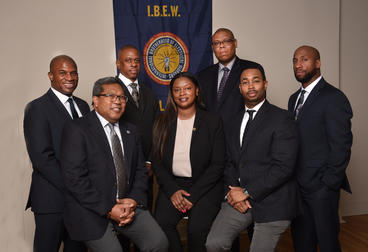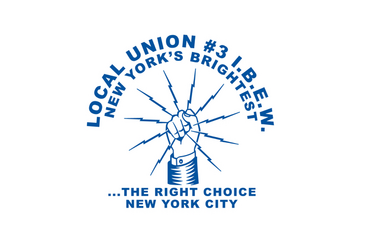Date Posted
New York City is a uniquely welcoming environment to organizations that serve labor and the community. Not only are labor and community organizations prevalent, but their work impacts the lives of all 8 million plus residents of the city; therefore, it is essential to be knowledgeable and involved in the work of such organizations to know just how their everyday decisions will impact our everyday lives. Furthermore, we must understand the ties between labor and the community, as well as how we may use those ties to strengthen the city as a whole.
The New York City Central Labor Council, AFL-CIO has addressed the importance of labor in the community through the creation of the Community Board Initiative. The Community Board Initiative (CBI) is a unique way to engage members of organized labor in their communities through participation in various boards throughout the city. These boards are active through not only their members, but also local politics, via borough presidents. Their work is mutually beneficial to labor unions and the communities that make up New York City. The CBI benefits unions in that it educates community members, regardless of union membership status, on union issues; then, with power in numbers and ties to å_local government, boards may influence labor policy at a grassroots level. Simultaneously, the CBI may benefit the community in that it works closely with the government on issues such as the budget, zoning and land use, as well as advocates for social and labor issues that are pertinent to NYC residents today, such as education, health care and affordable housing.
The Community Board Initiative has a total of 59 boards throughout the city, å_divided based on geographical region. Each board consists of 50 unsalaried members, all appointed by borough presidents and district council members. Boards also appoint salaried district managers to improve the delivery of city services to the districts, in addition to board staff.
The benefits of membership are endless. They include the ability to meet fellow unionists in your community and get to better know the community in which you live. Additionally, you may serve as an advocate for the best interests of your community, helping to maintain if not improve the place you call home. And finally, your experience as a Local 3 member enables you to voice your concern to your borough president and city council members on a number of issues currently affecting labor in New York City.
To be a member of a community board, you must be a resident of NYC and at least 16 years of age. You must also attend New York City Central Labor Council Community Board Training 101, community board meetings and a community board executive meeting. You must also submit the appropriate documents, including a r̩sum̩ and an application. For an application or questions, you may contact Maryann Rosa at mrosa@nycclc.org or via fax at 212-604-9550.
‰ÛÏNow more than ever, we must stand in solidarity to continue the fight to ensure that all workers receive fair pay, benefits and the right to have a voice in the workplace.‰Û� å_Vincent Alvarez, President of the Central Labor Council, urges the importance of community boards in serving labor. ‰ÛÏWith my knowledge of the Community Board Initiative and its work in advocacy for labor and communities, I would highly recommend applying for the community board nearest you. Your representation on a community board will result in the strengthening of your community, your union and your city!


